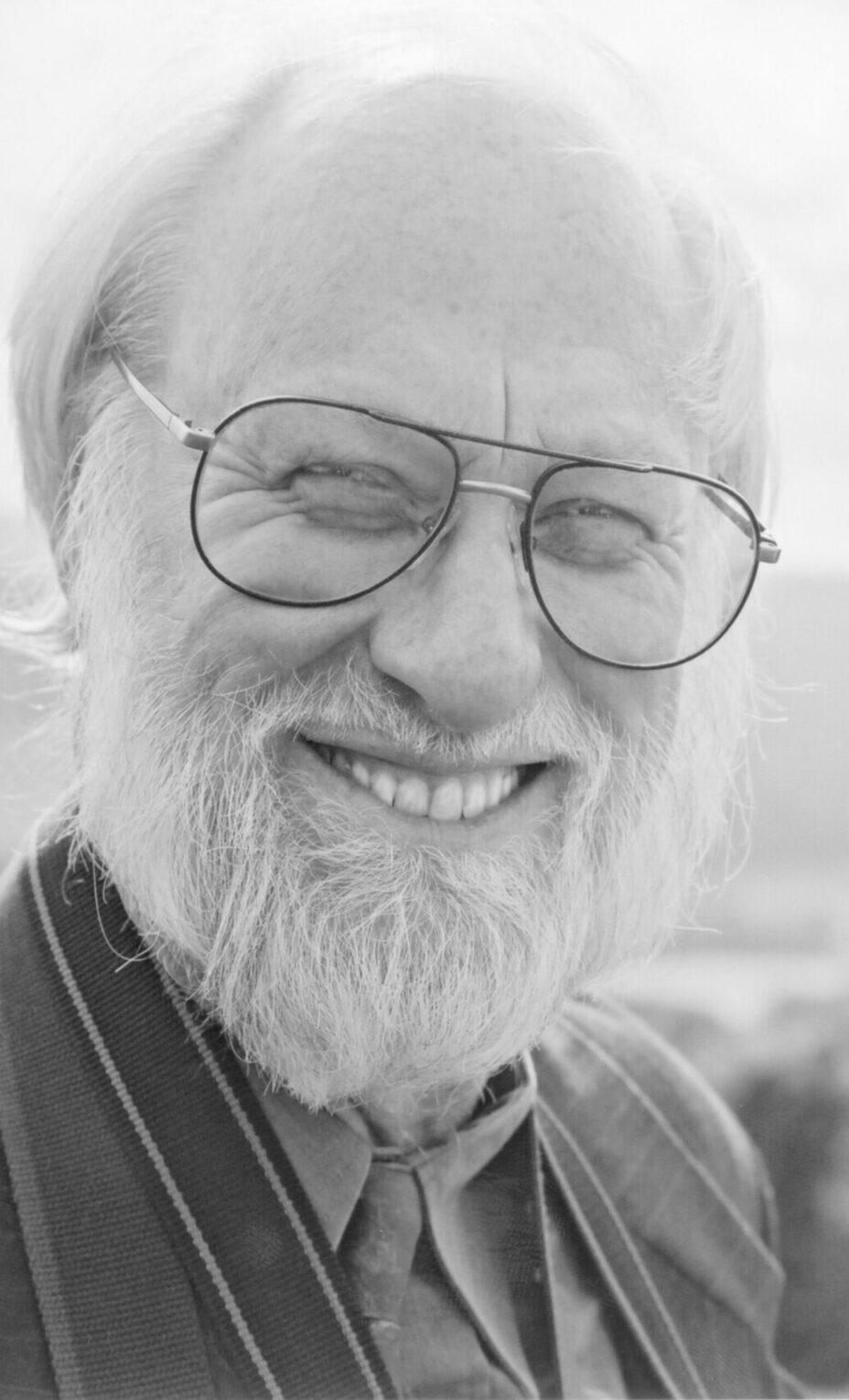Professor David Cove: 1936 – 2024
We are sorry to announce that Professor David Cove has passed away. The following obituary is courtesy of his wife Anne.

From early on David Cove was interested in botany with a particular interest in plant breeding. Having done 2 years of National Service in the Royal Army Medical Corps, he was accepted by Trinity Hall in 1957 to read the Natural Sciences Tripos. Here he found his love for fundamental genetics which he did as his Part II. His long research career then started when he became a PhD student in the Cambridge Department of Genetics in 1960.
Initially he worked on a fungus, Aspergillus nidulans where he used induced mutants to study the assimilation of nitrogen. His first ever publication in 1963 went into Nature – the most prestigious journal at that time. However, what many don’t know is that he’d had an article about Mistletoe accepted into Nature when he was still a schoolboy!
He published more than 40 articles on Aspergillus nidulans, but he was really looking to follow his botanical desires for a simple plant system that he could use as a model for studying morphogenesis.
He met his hero (David’s own words), Harold Whitehouse, at Cambridge. Harold was a famous moss researcher who introduced him to a little-known ephemeral moss, Physcomitrella patens, which grew near Cambridge. This followed a proposal from a prospective PhD student, Neil Ashton, that he work on moss. Obtaining mutants in moss proved as easy as in the fungus. The switch to moss altered David’s career dramatically. This was a particularly interesting time of discovery in genetics and David was fortunate to meet and interact with some very illustrious scientists including Francis Crick, Sydney Brenner, and Roger Gautheret in Paris.
In 1962 David married Anne, and in 1963 got his PhD and became post-doctoral fellow. He was appointed to a Staff Fellowship at Trinity Hall in early 1964, taking on his first graduate student the same year. He was also appointed as Director of Studies in Biological Sciences at Trinity Hall in the same year.
David was invited to become the first warden of Wychfield in 1968 after Boulton House opened to undergraduates. For the next 10 years, Anne and David were responsible for the care and well-being of students as well as the practical day to day running of the site. During this period, Anne and David’s family grew from 2 to 5 children. In his spare time, David took part in various university committees, including senior member of the Trinity Hall May Ball Committee. He was also heavily involved in providing the lighting for theatre productions by the Preston Society and the ADC.
Herrick house was built during their time at Wychfield and Anne and David often hosted the architects’ site meetings.
In 1978, David took up the Chair in Genetics at Leeds, becoming one of the youngest professors in the country and setting up a brand-new dedicated lab. His connection to Trinity Hall continued despite the move north.
Then in the early 90’s, David became a Visiting Professor at The University of North Carolina at Chapel Hill, in the lab of Ralph Quatrano, an already well-established international plant scientist. This collaboration extended David’s career by many years following his so-called retirement in 2002. He went on to become Visiting Professor and a Leverhulme Emeritus Research Fellow at Ralph’s new lab in Washington University in St Louis. David and Ralph were instrumental in getting the moss genome sequenced through the US Department of Energy’s Joint Genome Institute in Berkeley, California. This was a landmark project because moss is 400 million years older than flowering plants, so it helped us to understand the evolution of plants.
David published prolifically on moss and well into his retirement. In 2016, he received The Golden Spore Award and was dubbed ‘The Godfather of moss’ for his pioneering work on Physcomitrella.
His final article in 2021 was very fitting as it used all the tools that he had produced by his research to find the gene responsible for one of the mutants his group had isolated more than 30 years earlier.
Some say David was loud: it is said his students at Cambridge loved him as they didn’t have to get out of bed to hear his lectures. He wasn’t loud, he was ebullient, he was enthusiastic – enthusiastic to the point of evangelical when it came to his research. His evangelism led to many converts to the moss cause.
David was cremated on Monday 23rd September 2024 surrounded by his loving wife Anne, 5 children, grandchildren, great grandchild, family and friends.
